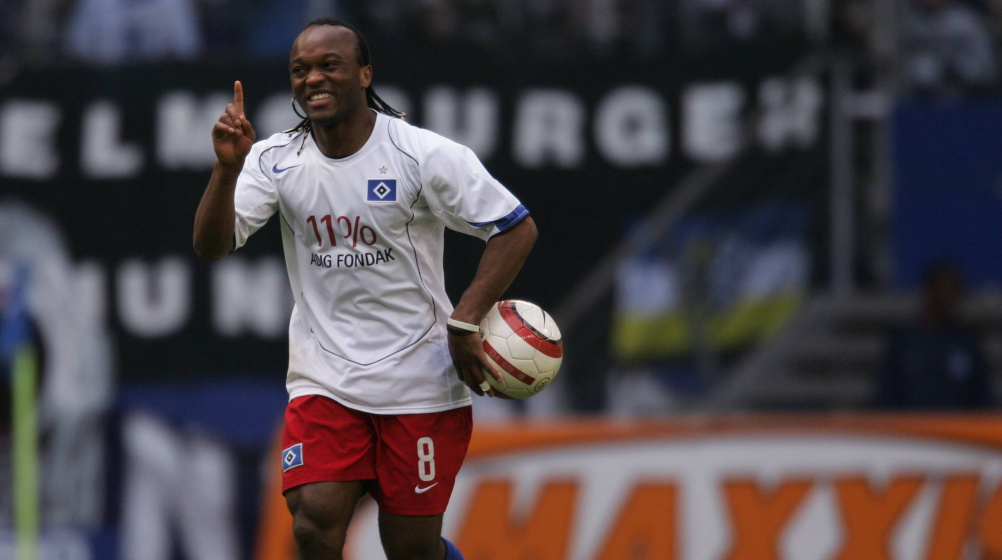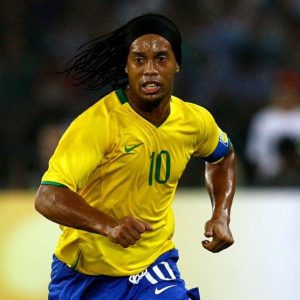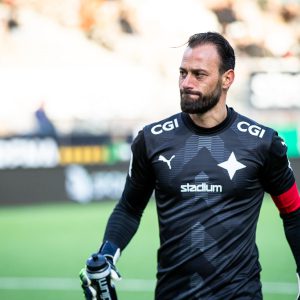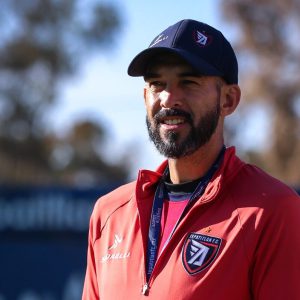

Almami Moreira: “Young players think they know everything“
Photo credits: Transfermarkt
Almami Moreira is a former Partizan, Standard Liège, Hamburger SV, FC Dynamo Moscow, and Boavista FC player and currently is the General Director of the Football Federation of Guinea-Bissau. The former international soccer player by the Portugal and Guinea-Bissau national teams reflects on the importance of role models in young players and the future of African football in a conversation led by Nuno Milheiro.
Almami revealed that the first role models he had in football were his parents, more than his childhood idols. “I remember one time – it was a Sunday morning – I did not want to go to play. My coach came home to call me, and I did not want to. I do not remember why, because I was too young. My parents, especially my father, told me «If you want to be a soccer player, you must decide now. I know you are young, but you must have compromise». That was something that stayed with me for many years. When I started at Boavista FC, players like Bobó and Erwin Sanchéz were important for me. Giving someone advice is free, but young players must accept them. In my case, I have always paid attention to what people told me. When they gave me something, I just stopped and listen. In the next training session, I tried to apply what I had learned from them”, he said.
Today, however, he believes that young players are no longer so receptive to listening carefully to the advice of former football players. “Times have changed. Presently, it is more difficult to advise. Young players think they know everything. When we were young, sometimes we had training sessions with the first team. For us, that was something incredible. When we went there, we were always listening and respecting older players”.
Now the mentality is different. It is also easier for younger players to have a chance to play in their first teams and earn a lot of money.
In his opinion, the pressure that many parents put on their children to become professional players and achieve high-performance levels can be harmful to their development.”We can see that even on training sessions for young players! That is not good. First of all, we must let them enjoy themselves. You cannot force them to play. They must love what they are doing. It does not matter if they are tennis, soccer, or futsal players. There will be a time when they can become professionals, but it is not up to us – parents – to tell them what they must do”.
A year and a half ago, Almami received an invitation from president Carlos Teixeira to restructure the Football Federation of Guinea-Bissau and has since assumed the General Director position. “We have a lot of talented players. It is true: we have a lot of problems, but we are much better now. It is not because I am there, but I am trying to make things easier for the players. That was something I learned in Germany when I was a player: they must be focused on the pitch, nothing else. We just finished our third participation in the Africa Cup of Nations, which was incredible for a small country like Guinea-Bissau, so I think we are doing well. We must and will improve”, he said.
There is an ongoing challenge to persuade players to represent Guinea-Bissau, but the former player shows optimism when analyzing the future of the national team. “We have many top players, but many of them do not want to go to the national team because of the [lack of] organization. Things are changing now. You can see that many players now want to play for their national teams in Africa”.
If the organization is good, players will accept to represent their national teams. In the future, I think Guinea Bissau can have top players like Ghana, Ivory Coast, or Togo.
From a technical point of view, African athletes are extremely gifted but the General Director of the Football Federation of Guinea-Bissau considers that favorable conditions must be ensured to develop their tactical part internally. “African players have talent, will, and strength, but why do African countries do not win a World Cup? We have a lot of quality, but there are other parts where we need to improve. If you see young African players in the street, you will see natural talent, but that must be worked. An African player can take the ball, dribble one, two, three, four, or five players, but if you put him on the pitch to play 11 against 11 tactically… It is tough for them. When they arrive in Europe, maybe they lose one or two years to learn those things. But if you start to implement that in Africa, when players come to Europe, they will not lose one or two years of learning. They will be ready in two or three months”, he concluded.
Categories
Latest Courses
-
9 Lessons
-
1 Lesson
-
6 Lessons
You May Also Like
- Blog
- August 1, 2022
- Blog
- June 3, 2022
- Blog
- May 27, 2022
Developed by Brandit Digital Media Services.





